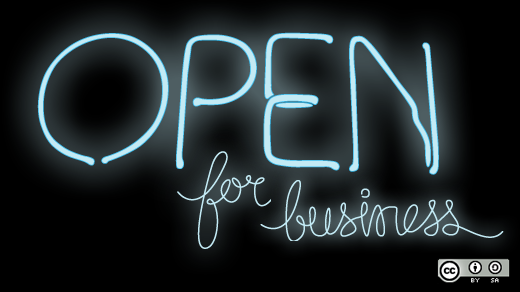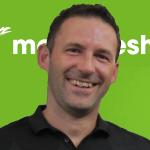If you're launching a company, you might believe you shouldn't have to deal with issues like personnel development and company culture. After all, as a startup you're only concerned with the development and rapid evolution of your own product and services, right?
This kind of thinking is short-term thinking. Successful startups develop organizations with long-term strategies in mind. Startups really should think about—and prepare the groundwork for—their own company culture from beginning, so they can scale it over time as they grow.
That's what we should have done.
As former IT managers, project managers and software developers, we founded our company in 2004 and started developing business intelligence solutions and open source ERP software, initially with Compiere and later with ADempiere and metasfresh. We had few people and many tasks to perform. If we didn't have the know-how we needed to do a particular job well, then we taught ourselves enough to muddle through. For us, it felt like Kaizen: doing a lot of small steps, but moving and improving continuously.
As with many young companies, we didn't think much about whether this was the right way to do things; we were completely focused on what needed to be done and solved problems as fast as we could. This way of working was obvious to us. It felt natural. In fact, because our product is open source, we were able to transfer knowledge and experience we gained from open source projects directly into our organization and our style of working.
But like all startups, we eventually needed to hire more people to help our organization grow. And that meant scaling our fast-paced, open, and collaborative culture to new colleagues. How were we going to do that?
We did it by developing our own open leadership training program, which has four key dimensions. I'd like to share them.
Everyone is fit for leadership
When we at metasfresh reached the point where we wanted to hire our first employees, we had to ask ourselves: What should these employees be able to do, and who should support them?
Our answer: "Everything, and everybody."
We decided that our new colleagues should not only be employees; they should also be community members. We wanted them to be able to do what we'd been doing at that time—perhaps even better than we had. We knew immediately that finding such perfect fits would be difficult, so we decided to search for people with some needed technical skills and a great team spirit. But we also thought hard about how we could describe our way of working and therefore allow our new colleagues to transform into efficient team members quickly.
I recalled a former employer, Bonndata, an IT service provider for a large insurance company called "Deutscher Herold." That company utilized a personnel development program called "Fit4Leadership." The core focus of the program was preparing the company's own employees (almost exclusively COBOL Software Developers and Mainframe specialists) for future challenges in their fast-changing worlds. An essential part of Fit4Leadership was an annual interview, which the heads of various departments held together with employees.
A questionnaire helped everyone prepare for that interview. All parties involved used it to exchange feedback on professional and social developments through a dialogic practice. It was not only about the supervisor's perception of the employee, but also the other way around.
This was what we needed for the foundation of our own training. We extracted a few additional elements, too, but kept the name "Fit4Leadership" because it expressed exactly what we wanted to achieve with our own program: allowing everybody to reach for leadership in their respective areas.
Over time and through our work on the program, we found the following four cornerstones that are currently the foundation of our organizational culture. So we designed our own Fit4Leaderhip program to help us make these values sustainable—in the long term.
1. Competence wheels
We use three "competence wheels" to define general targets for personal development within our company. The competence wheels are divided into:
- Technical know-how (e.g., Java, SQL, ReactJS, Redux, Jasperreports and more)
- Functional know-how (e.g., inventory management, commission, logistics, accounting and more)
- Soft skills (e.g., self-responsibility, quality consciousness, solution orientation and more)
We then divide each competency into three skill levels: connoisseur, adept, and expert. The know-how we describe in each of the competence wheels includes the knowledge and skills required to carry out our work in our company. In doing so, we do not make a distinction between different roles. Every team member decides on their own how to develop and fill a competence wheel—either very focussed on reaching the expert status within one area, or on broader development in all areas.
We adapt the contents of the competence wheels to the current needs of our team and company once a year as part of the personal annual discussions. The acquired skill level is proposed by the individual team member as well as the team. The result is a wonderful balance between self-perception and perception from the team, a fairer classification everyone can accept.
2. Shared responsibility for culture
In our organization, all team members participate in and are responsible for the development of our internal company culture and people development program.
This is really a no-brainer for us, because it's exactly what we learn through our daily collaboration in open source environments. When people experience the possibility of engaging in a topic and receive the feedback that their engagement is appreciated, their motivation to collaborate even further increases.
What's more, we invite all team members to try new things and take risks in doing so. Failure is a fundamental part of our professional development. We provide a secure environment that allows such developments—and also possibilities for communicating about the outcomes, so all can learn from them.
This approach is not only valid for technical developments but also explicitly wanted for our organizational workflows. All team members should participate actively in the development of the way we work and have the chance to receive and give feedback frequently.
3. Minimize overhead
All the skills we include in our competence wheels match what the team needs to do its work and collaborate efficiently. So we incorporate all opportunities to improve the own competences in our daily work. People new to our company often need time to fully understand that they're not reporting to a single boss, but to an entire team. This kind of peer accountability actually speeds up our work by minimizing overhead.
We all maintain a backlog of prioritized Issues. Team members can decide which issues their personal knowledge and skillset best equip them to handle. We invite everybody to not only take issues in their comfort zones but also take issues that are above their current capabilities.
In the process of solving issues, all of us have the responsibility to achieve the knowledge we need for doing the work. When you don't know something, you ask a teammate. And if someone asks you for help with an issue, then you can take that as an indication that your own professional development is on the right track.
That's one reason why we see our company culture, including the way we tackle issues as part of our daily work, tightly connected to our people development program. For us, both belong together—two sides of the same coin. This makes our personal development effective because work, control, and feedback rest on the shoulders of all team members.
4. Always share knowledge
In open source communities, there may be situations in which individuals can not distinguish themselves despite their good performance and participation. This can lead to situations where important knowledge exists in the community but only remains with one individual and therefore does not add value to everyone's work in the long run.
We solve this with mandatory daily standups involving all team members in video conferencing. We use these opportunities to get to know all members quickly and continuously and to offer a platform on which everyone can present themselves in a defined framework. The agenda for the daily meeting is timely and thematic, and all participants (not only the moderator) discuss and agree on it. The daily standup ensures that much information is distributed in the shortest possible time. There are often topics for which members then agree for a follow-up exchange and thus promote an efficient spread of ideas and knowledge.
These routines play an important role in giving the members a secure environment to express their ideas and also taking the risks of failure. In our work environment, failures are part of a natural development and they are experienced without the loss of trust in our team.
Conclusion
These basics accompany and guide us to this day, even as we are in a process of constant change and improvement. They form the cornerstones of the development in our company as well as our open source community metasfresh. We continue to travel on our Fit4Leadership path, and have learned a lot over the past 13 years. The beautiful and exciting thing for us is that this path will never end.






2 Comments